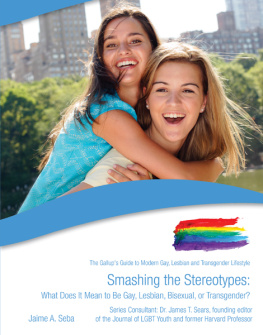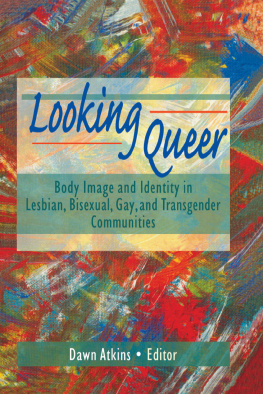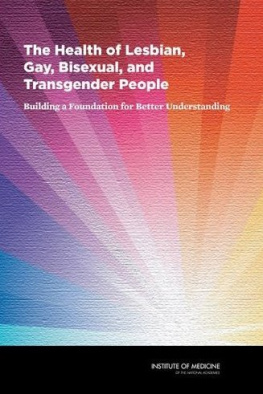Fish - Social Work and Lesbian, Gay, Bisexual and Trans People
Here you can read online Fish - Social Work and Lesbian, Gay, Bisexual and Trans People full text of the book (entire story) in english for free. Download pdf and epub, get meaning, cover and reviews about this ebook. year: 2012, publisher: Policy Press, genre: Politics. Description of the work, (preface) as well as reviews are available. Best literature library LitArk.com created for fans of good reading and offers a wide selection of genres:
Romance novel
Science fiction
Adventure
Detective
Science
History
Home and family
Prose
Art
Politics
Computer
Non-fiction
Religion
Business
Children
Humor
Choose a favorite category and find really read worthwhile books. Enjoy immersion in the world of imagination, feel the emotions of the characters or learn something new for yourself, make an fascinating discovery.

Social Work and Lesbian, Gay, Bisexual and Trans People: summary, description and annotation
We offer to read an annotation, description, summary or preface (depends on what the author of the book "Social Work and Lesbian, Gay, Bisexual and Trans People" wrote himself). If you haven't found the necessary information about the book — write in the comments, we will try to find it.
Fish: author's other books
Who wrote Social Work and Lesbian, Gay, Bisexual and Trans People? Find out the surname, the name of the author of the book and a list of all author's works by series.
Social Work and Lesbian, Gay, Bisexual and Trans People — read online for free the complete book (whole text) full work
Below is the text of the book, divided by pages. System saving the place of the last page read, allows you to conveniently read the book "Social Work and Lesbian, Gay, Bisexual and Trans People" online for free, without having to search again every time where you left off. Put a bookmark, and you can go to the page where you finished reading at any time.
Font size:
Interval:
Bookmark:

| ADP | anti-discriminatory practice |
| BIHR | British Institute of Human Rights |
| CCETSW | Central Council for Education and Training in Social Work |
| CQC | Care Quality Commission |
| CSCI | Commission for Social Care Inspection |
| DCA | Department for Constitutional Affairs |
| DCLG | Department for Communities and Local Government |
| DCSF | Department for Children, Schools and Families (from June 2007) |
| DfES | Department for Education and Skills |
| DH | Department of Health |
| EBL | enquiry-based learning |
| ECM | Every Child Matters |
| EHRC | Equality and Human Rights Commission |
| GSCC | General Social Care Council (the regulatory body for social work 200312) |
| HPC | Health Professions Council (the regulatory body for social work from 2012) |
| IASSW | International Association of Schools of Social Workers |
| IFSW | International Federation of Social Workers |
| ILGA | International Lesbian and Gay Association |
| LGB | lesbian, gay and bisexual |
| LGBT | lesbian, gay, bisexual and trans |
| NOS | National Occupational Standards |
| PCF | Professional Capabilities Framework (new curricula standards for social work) |
| PFC | Press For Change (trans rights organisation) |
| QAA | Quality Assurance Agency (sets curriculum standards in Higher Education) |
| SCIE | Social Care Institute for Excellence |
| SWRB | Social Work Reform Board |
| TOPSS | Training Organisation for the Personal Social Services |
| UKBA | UK Border Agency |
Font size:
Interval:
Bookmark:
Similar books «Social Work and Lesbian, Gay, Bisexual and Trans People»
Look at similar books to Social Work and Lesbian, Gay, Bisexual and Trans People. We have selected literature similar in name and meaning in the hope of providing readers with more options to find new, interesting, not yet read works.
Discussion, reviews of the book Social Work and Lesbian, Gay, Bisexual and Trans People and just readers' own opinions. Leave your comments, write what you think about the work, its meaning or the main characters. Specify what exactly you liked and what you didn't like, and why you think so.






